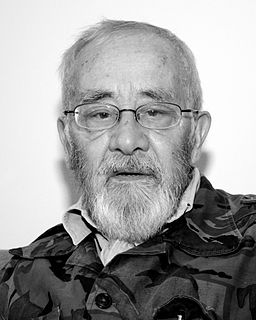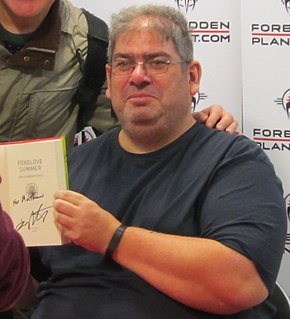
John Edward Thaw, was an English actor who appeared in a range of television, stage, and cinema roles. He starred in the television series Inspector Morse as title character Detective Chief Inspector Endeavour Morse, Redcap as Sergeant John Mann, The Sweeney as Detective Inspector Jack Regan, Home to Roost as Henry Willows, and Kavanagh QC as title character James Kavanagh.
Cecil Antonio "Tony" Richardson was an English theatre and film director and producer whose career spanned five decades. In 1964, he won the Academy Award for Best Director for the film Tom Jones.

Alan Sillitoe FRSL was an English writer and one of the so-called "angry young men" of the 1950s. He disliked the label, as did most of the other writers to whom it was applied. He is best known for his debut novel Saturday Night and Sunday Morning and his early short story "The Loneliness of the Long Distance Runner", both of which were adapted into films.
The Twilight Zone is a nationally syndicated radio drama series featuring radio play adaptations of the classic television series The Twilight Zone first produced for the British station BBC Radio 4 Extra in October 2002 with the final show released in 2012 for 176 episodes in all.

The Twilight Zone is an American science fiction horror anthology television series created and presented by Rod Serling, which ran for five seasons on CBS from October 2, 1959, to June 19, 1964. Each episode presents a stand-alone story in which characters find themselves dealing with often disturbing or unusual events, an experience described as entering "the Twilight Zone," often with a surprise ending and a moral. Although predominantly science-fiction, the show's paranormal and Kafkaesque events leaned the show towards fantasy and horror. The phrase "twilight zone," inspired by the series, is used to describe surreal experiences.

"The Loneliness of the Long-Distance Runner" is a short story by Alan Sillitoe, published in 1959 as part of a short story collection of the same title. The work focuses on Smith, a poor Nottingham teenager from a dismal home in a working class area, who has bleak prospects in life and few interests beyond petty crime. The boy experiences social alienation and turns to long-distance running as a method of both emotional and physical escape from his situation. The story was adapted for a 1962 film of the same title.

Ben Dylan Aaronovitch is an English author and screenwriter. He is the author of the Rivers of London series of novels. He also wrote two Doctor Who serials in the late 1980s and spin-off novels from Doctor Who and Blake's 7.

John Mervyn Addison was a British composer best known for his film scores.
The British New Wave is a style of films released in Great Britain between 1959 and 1963. The label is a translation of Nouvelle Vague, the French term first applied to the films of François Truffaut, and Jean-Luc Godard among others.
Raymond Austin is an English television and film director, television writer and producer, and former stunt performer and actor who has worked in both the United Kingdom and the United States. He served as director on episodes of some 50 TV programmes between 1968 and 1998.

Walter Lassally was a German-born British cinematographer. He won the Academy Award for Best Cinematography in 1965 for the film Zorba the Greek.

Joseph Hillström King, better known by the pen name Joe Hill, is an American writer. His work includes the novels Heart-Shaped Box (2007), Horns (2010), NOS4A2 (2013), and The Fireman (2016); the short story collections 20th Century Ghosts (2005) and Strange Weather (2017); and the comic book series Locke & Key (2008–2013). He has won awards including Bram Stoker Awards, British Fantasy Awards, and an Eisner Award.
"The Lonely Goatherd" is a popular show tune from the 1959 Rodgers and Hammerstein musical The Sound of Music.

Desmond Stanley Tracey Davis was a British film and television director, best known for his 1981 version of Clash of the Titans.

The Loneliness of the Long Distance Runner is a 1962 British coming-of-age film. The screenplay was written by Alan Sillitoe from his 1959 short story of the same title. The film was directed by Tony Richardson, one of the new young directors emerging from the English Stage Company at the Royal Court.
Ellie, or Elly, is a given name, usually feminine. The name stands on its own or can be a shortened form of any of the numerous female names beginning with the syllable El-, in particular Eleanor or Elizabeth and Elvira. It can also be a short form of Elena, Michelle, Elnaz, Elham, Elaheh, Eliana, Eloise, Emelia, Elisa, Ellisha, Elisha, Elesha, Shelly, Eleni, or Petronella and as a masculine name of Eleazer, Elliot, Elron, or Elston. In Greek mythology, Ellie (Helle) was the daughter of Athamas and Nephele; sister of Phrixus.
"Sonny Boy" is a song written by Ray Henderson, Buddy De Sylva, and Lew Brown. It was featured in the 1928 part-talkie The Singing Fool. Sung by Al Jolson, the 1928 recording was a hit and stayed at #1 for 12 weeks in the charts and was a million seller.

Anthony Sagar was an English character actor and a member of the National Theatre. He was prolific screen performer and appeared in many films and television series including the 1959 adaptation of The Moonstone, Steptoe and Son, The Avengers and Dad's Army.










